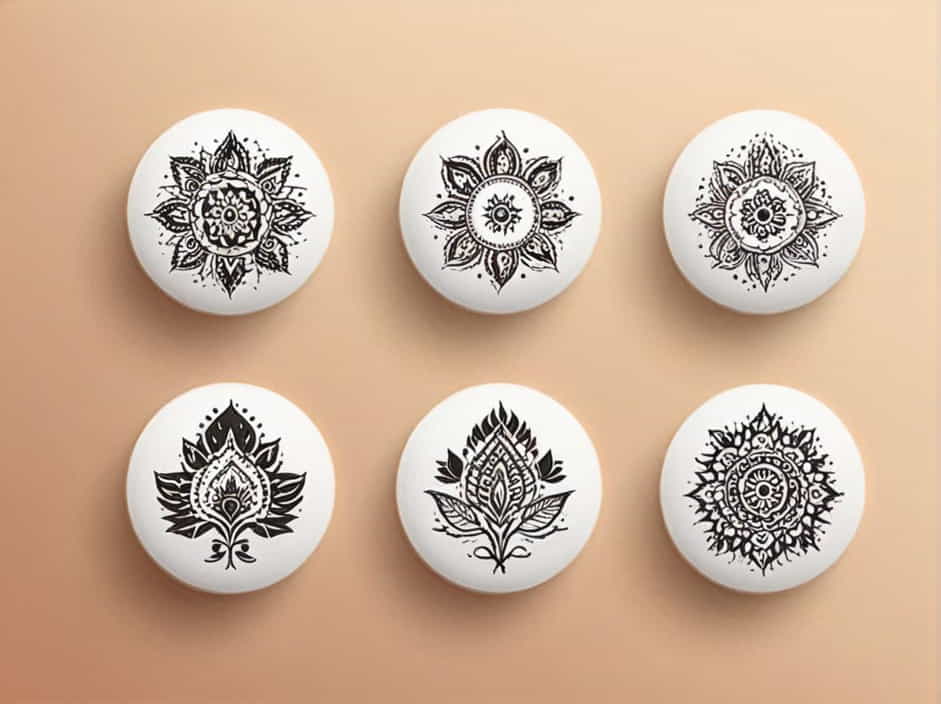Henna tattoos are a beautiful and temporary form of body art that has been used for centuries in various cultures. Unlike permanent tattoos, henna designs fade over time, making them a great option for those who want a temporary decorative look.
But exactly how long does a henna tattoo last? The duration depends on several factors, including skin type, application method, and aftercare. This guide will explain everything you need to know about henna longevity, how to extend its lifespan, and what can cause it to fade faster.
How Long Do Henna Tattoos Last?
On average, a henna tattoo lasts between one to three weeks. However, the exact duration depends on various factors:
- Skin type – Oily skin tends to make henna fade faster.
- Body placement – Henna lasts longer on areas with thicker skin, like the hands and feet.
- Henna quality – Natural, high-quality henna stains deeper and lasts longer.
- Aftercare – Proper care can extend the lifespan of your henna tattoo.
Factors That Affect Henna Tattoo Longevity
Several elements determine how long your henna design will stay visible. Let’s break them down:
1. Henna Paste Quality
The type of henna used plays a major role in how long the stain lasts. Natural henna, made from the Lawsonia inermis plant, provides a deep reddish-brown stain that lasts longer than artificial or low-quality henna.
Avoid “black henna” or chemically enhanced henna, as these may contain harmful additives that can irritate the skin.
2. Skin Type and Body Placement
The location of the henna tattoo affects its lifespan. Thicker, drier skin absorbs henna better, making the stain last longer.
- Longest-lasting areas: Palms, fingers, feet
- Moderate duration: Wrists, arms, ankles, shoulders
- Fades quickly: Face, neck, back, thighs
Oily skin can break down the henna faster, leading to a shorter-lasting design.
3. Application and Drying Time
The longer the henna paste stays on the skin, the deeper the stain. To maximize the stain:
- Leave the paste on for at least 4-6 hours (overnight is best).
- Wrap the area with plastic or medical tape to keep it warm and moist.
- Avoid washing the henna off with water; scrape it off instead.
4. Aftercare Routine
Proper aftercare can prolong the life of your henna tattoo. Follow these tips:
- Avoid water for the first 24 hours after removing the henna paste.
- Apply natural oils (coconut, olive, or shea butter) to keep the stain vibrant.
- Minimize scrubbing, swimming, and excessive sweating to prevent fading.
5. Daily Activities
Frequent handwashing, exposure to soaps, detergents, and chlorine, and excessive sweating can cause henna to fade faster. If you want to make your henna last longer, try to limit contact with water and chemicals.
How to Make a Henna Tattoo Last Longer
If you want to extend the lifespan of your henna design, follow these effective tips:
1. Exfoliate Before Application
Before getting a henna tattoo, gently exfoliate your skin to remove dead cells. This helps the henna stain adhere better and last longer.
2. Keep the Henna Paste on for a Longer Time
The longer the henna paste stays on, the darker and longer-lasting the stain will be. Try keeping it on for at least 6 hours for the best results.
3. Apply a Sugar and Lemon Mixture
Dabbing a sugar and lemon juice mix on the dried henna helps it stay in place longer, allowing deeper absorption into the skin.
4. Moisturize with Natural Oils
After removing the henna paste, keep your skin moisturized with coconut oil, olive oil, or shea butter. Avoid lotions with alcohol, as they can cause fading.
5. Avoid Water and Soap on the First Day
Refrain from washing the area for at least 24 hours after removing the henna paste to allow the stain to set properly.
6. Wear Gloves When Using Cleaning Products
If your henna is on your hands, wear gloves while washing dishes or cleaning to protect it from harsh chemicals.
How to Remove a Henna Tattoo Faster
If you need to remove a henna tattoo quickly, there are a few methods you can try:
1. Exfoliation with Baking Soda and Lemon
Mix baking soda and lemon juice into a paste and gently rub it onto the skin. This helps lift the stain faster.
2. Use Hydrogen Peroxide
Dabbing hydrogen peroxide on the henna stain can help lighten it. However, be sure to moisturize afterward to avoid skin dryness.
3. Scrub with Saltwater
Soaking in saltwater or swimming in the ocean can speed up the fading process.
4. Apply a Gentle Exfoliating Scrub
Use a loofah or sugar scrub to remove dead skin cells and fade the henna gradually.
Frequently Asked Questions (FAQs)
1. Can I Make My Henna Tattoo Last for a Month?
No, henna tattoos typically last 1-3 weeks. However, with proper care, you can extend it slightly beyond three weeks.
2. Does Henna Fade Evenly?
Henna generally fades gradually, becoming lighter over time until it disappears completely.
3. Can I Shower After Getting a Henna Tattoo?
Avoid water for at least 24 hours after removing the henna paste to allow the stain to develop fully.
4. Does Sun Exposure Affect Henna?
Yes, excessive sun exposure can cause henna tattoos to fade faster. Moisturize regularly to protect the stain.
5. Is Henna Safe for All Skin Types?
Natural henna is generally safe, but some people may have mild allergic reactions. Always do a patch test before applying henna.
Final Thoughts
Henna tattoos are a temporary, beautiful, and cultural form of body art. Their lifespan depends on henna quality, skin type, placement, and aftercare.
By following proper care techniques, you can maximize the longevity of your henna tattoo. If you need to remove it early, exfoliation and natural remedies can help fade the stain faster.
Whether you’re getting henna for a special occasion, festival, or just for fun, knowing how to maintain it will ensure you enjoy your design for as long as possible!
